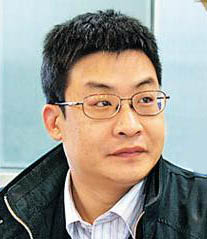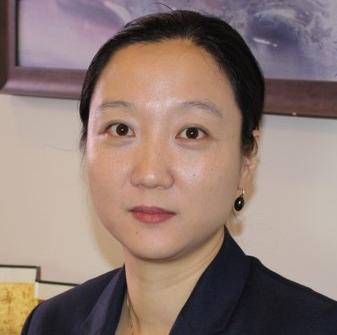Any major event in the times of globalization may be a result of world powers playing games and maintaining a dynamic balance. The meeting between Zhang Zhijun and Wang Yu-chi, an important event in cross-Taiwan Straits relations, is no exception. The two reached an agreement to exchange visits and establish regular communication between the mainland’s Taiwan Affairs Office (TAO) and Taiwan’s Mainland Affairs Council (MAC). Undoubtedly, this result of game playing between the two sides of the Taiwan Straits is also a result of maintaining a dynamic power balance.
Cross-Straits relations involve many complex factors. Taiwan is China’s core interest and Taiwan independence means war. When Chen Shui-bian was in office, the Straits were a powder keg of East Asia. In response, to contain de jure Taiwan independence, cross-Straits relations were steered into peaceful development and maintaining that peace was an important component to ensure peace and stability in the Asia Pacific. Fortunately in May 2008, KMT, the party holding the 1992 consensus, came into power and the two sides of the Taiwan Straits marched into a period of peaceful development. This has been the result of concerted efforts of the Chinese on both sides, and embodied the strategic considerations and efforts of both China and USA.
However, the Democratic Progressive Party (DPP) still insists on it’s party program of Taiwan Independence and rejects the 1992 consensus, which constitutes a destabilizing factor in cross-Straits relations. If the DPP came to power in 2016, the momentum of peaceful growth of cross-Straits relations may be interrupted and exchanges between parties holding the 1992 consensus and between ARATS and SEF, two white-glove agencies, may not function well. In this light, direct contact between agencies in charge of cross-Straits affairs is a necessary path to promote continued, stable and peaceful development across the Taiwan Straits.
For the mainland of China, such contacts have nothing to do with sovereignty or jurisdiction and should therefore be acceptable to all parties concerned. Agencies holding external affairs are both self-named Ministry of Foreign affairs while the TAO and MAC are agencies designated to handle cross-Straits affairs. Such a separation indicates that the two sides are not two countries. With this feature of the “two sides of the Taiwan Straits,” the Zhang-Wang meeting is undoubtedly a meeting between the two sides rather than a diplomatic meeting. Therefore, it is not a new breakthrough in the political positioning of cross-Straits relations, nor will it necessarily cause interaction or mutual communication between other government departments. Of course the mainland hopes to have record of such historical moments in the course of promoting cross-Straits peaceful development in order to avoid unnecessary disputes or fallbacks due to rotation of ruling parties in Taiwan. It will also facilitate the steady progress of cross-Straits relations on the basis of such meeting results, the accumulation of which is essential for the two sides to maintain peaceful relations and gradually resolve problems between them. The clarity of results will ensure greater predictability to cross-Straits relations. For the mainland, it also helps clarify its position and demonstrate its actions to support such positions.
The Zhang-Wang meeting is an important example of the two sides giving up the Cold War mentality. Cross-Straits relations have been in existence for 65 years, the majority of which was during the Cold War. During that time, China and the U.S. belonged to different camps and the U.S. adopted the Taiwan Relations Act and sold arms to Taiwan on the basis of national interest. After the end of the Cold War, since President Xi Jinping proposed that China and the U.S. should make an effort to create a new model of big country relationship in particular, common interests between the two countries are increasing and the weight of Taiwan question in China-U.S. relations has decreased. Both China and the U.S. should shake off the Cold War mentality, have a fresh perspective on their relations, and carry out the necessary readjustment of their respective policies on the Taiwan question. However, with the U.S. implementation of the strategy to rebalance Asia, the Taiwan question has been linked to questions of the East China Sea, South China Sea, TPP etc.. Cross-Straits relations have been given more contents and become increasingly complex. Indeed China-Japan and China-ASEAN relations involve cross-Straits relations and white gloves or political parties of the two sides of Taiwan Straits cannot resolve the relevant questions. Determined to resolved the cross-Straits question peacefully and encouraging the implementation of principles guiding the management of cross-Straits differences, the mainland hopes that American leaders will understand the Chinese logic, including its positions and possible moves to safeguard such positions. In this regard, the Zhang-Wang meeting is also useful for the two sides of the Taiwan Straits and for China and the U.S. to avoid miscalculation and misunderstanding on both sides in order to create a better policy environment.
With local strategic fine-tuning or tactical adjustment, China and the U.S. will for sure run into different interests and strategic planning on the questions of the Taiwan Straits, East China and the South China Sea in the process of exploring a new model of big country relationship. A stable cross-Straits relationship with open communication channels will help place China-U.S. relations on a more consolidated basis, facilitate both countries blue sea strategies, and truly realize a new model of big country relationship. The realization of such a prospect will require that the U.S. play a better role, at the very least, by pushing the DPP to seek a common understanding with the mainland in order to minimize unpredictability in cross-Straits relations, which will serve the interests of people on both sides of the Straits and in the U.S.
Zhu Songling is a Professor at the Institute of Taiwan Studies in Beijing Union University.



